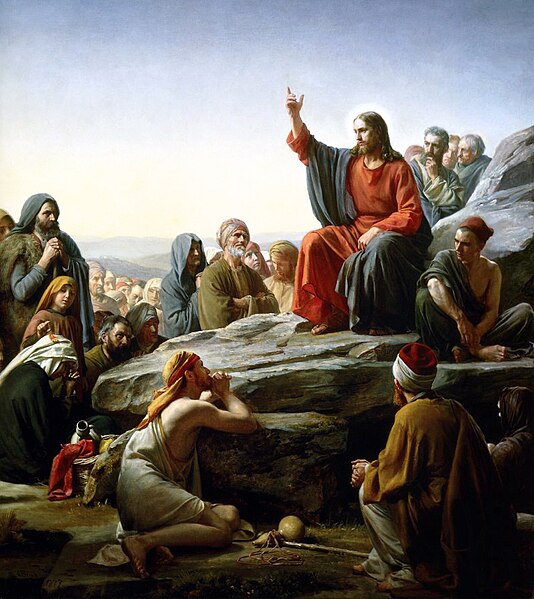I used to think I moved in two different worlds, especially on Sunday mornings, at that wobbly moment contemplating my sermon one final time before delivery, in the relative privacy of the vestry. Straightening my surplice (from J Wippell & Co who, by coincidence, make clerical and academic robes for some Universities) – and nothing could seem further from Fuse-land.
 |
| Is it all preaching to the converted? |
Not so. Sermons get written, re-written, researched, laced with contemporary references and re-checked, and then they get delivered to the converted. Seminars get written, re-written, researched, laced with contemporary references and re-checked, and then they get delivered to those who know the topic already. Churches are probably the last place to find the non-Christian enquirer. Seminar rooms are probably the last place to find the non-academic enquirer. And yet we still invest time and effort in both, for good reasons of feeding our minds, and indeed souls. But it’s not outreach and we know it in both cases.
So, we work on ‘church in the local’ (hiring a room in the pub to have a good open debate without the theological jargon) or Café Fuse (a very similar idea coming soon). We aim to join lots of local community groups (in the parish), or gain entry to meetings of key decision makers (in local government) to persuade those gracious enough to receive us on the other side of the table that it is worth asking Fuse. In both worlds we look hard for opportunities to exhibit and present ourselves, in one case a stand at the wedding fair, and in another a stall at a health conference.
We do all of this because a direct conversation outside our usual environment beats the institution, a joint project trumps a single track approach, and, above all, we’re both in the field of behaviour change at population level with a long time horizon, as Jesus said in the now lost Gospel of St John (Snow). Medieval buildings with stained glass windows that people last visited years ago (I refer to the older University as well as ecclesiastical buildings) are not necessarily the right place for the message – much as we might preserve them and their crusty occupants as national treasures.
Last Saturday, I went to a conference entitled, “How to share your faith” (led by Bishop John Pritchard, one of those Bishops who writes in a very accessible style, despite being Bishop of Oxford which surely is a job title that’s a passport to academic gatherings) – and it’s given me pause for thought. What would be the equivalent day for knowledge translation and public health?
Last Saturday, I went to a conference entitled, “How to share your faith” (led by Bishop John Pritchard, one of those Bishops who writes in a very accessible style, despite being Bishop of Oxford which surely is a job title that’s a passport to academic gatherings) – and it’s given me pause for thought. What would be the equivalent day for knowledge translation and public health?

Interesting question: I think the equivalent would probably be some sort of multi-stakeholder workshop on evidence-based peer-led interventions to distribute rigourously-validated smoking cessation literature to young people in a relevant and engaging manner. And the coffee would be better than at any church event. Much better.
ReplyDelete(Disclaimer to anyone tempted to take offence at my inferences regarding the generally modest standards of religiously-procured hot drinks: I am taking the mick only out of myself. Until I started with Fuse, I was employed as the church fundraiser - and thereby in part responsible for the the quality of the coffee provided....)
Thank you for thinking about this - the suggestion sounds good. Having had the benefit of the conference itself, I'd like to think we could have as direct approach as the Bishop had. He took popular objections to the faith and then put the counter argument. Our equivalent would be, for example, "They say that research is written in a style that is difficult to apply, but we say..."
ReplyDeleteAnd, as for the coffee, it has at least steadily improved as the fair trade market has expanded - long may this continue!